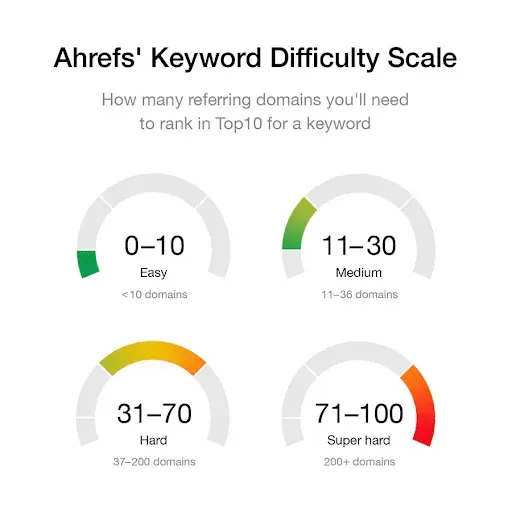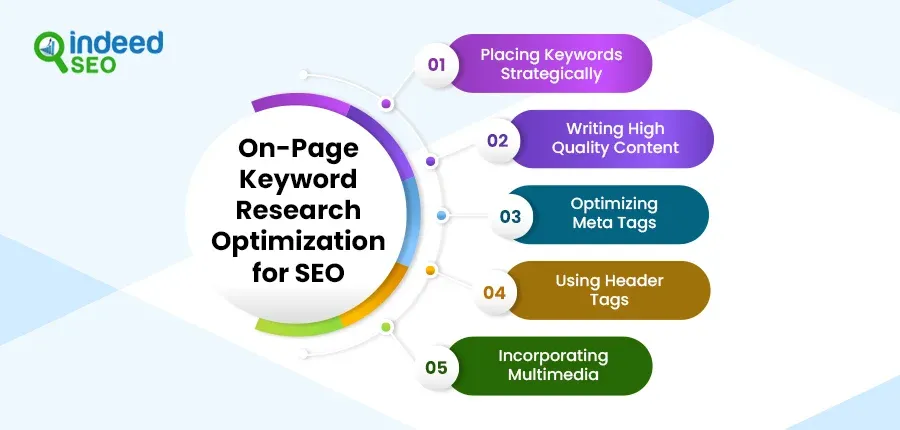Keyword Research in SEO is the foundation of successful SEO. Choosing the right keywords can propel a website to the top of search engine results pages (SERPs), attracting the right visitors and increasing conversions. This comprehensive guide explains how to perform keyword research effectively, why it is essential, and the best practices to adopt in 2025.
What is Keyword Research?
Keyword research is the process of identifying the words and phrases that users type into search engines when looking for information, products, or services. By optimizing your content with these keywords, you increase the chances of your website appearing in relevant searches.

Why is Keyword Research Important for SEO?
Without understanding Keyword Research in SEO, your SEO efforts may be misdirected, leading to poor visibility. The right keywords target your ideal customers and bring qualified traffic. Here are some key reasons:
- Improves website visibility
- Helps understand user intent
- Guides content creation
- Helps outrank competitors
- Increases conversion rates
Types of Keywords
Understanding different keyword types helps you tailor your strategies better:
- Short-tail keywords: General and broad, usually 1-2 words (e.g., “SEO”). High search volume but very competitive.
- Long-tail keywords: More specific 3+ word phrases (e.g., “keyword research in SEO 2025”). Lower search volume but higher conversion potential.
- LSI Keywords (Latent Semantic Indexing): Related terms that add context to your main keyword.
- Geo-targeted Keywords: Include location for local SEO (e.g., “SEO services in New York”).
How to Conduct Keyword Research Step-by-Step
1. Brainstorm Seed Keywords
Start with terms relevant to your niche. Use your knowledge or ask customers what terms they use when searching for your services or products.
2. Use Keyword Research Tools
Tools help expand your list and provide data on search volume, competition, and trends. Popular tools include:
- Google Keyword Planner
- Ahrefs
- SEMrush
- Ubersuggest
- Moz Keyword Explorer
3. Analyze Search Intent
Categorize keywords by intent: informational, navigational, transactional, or commercial investigation. This guides content creation to match what the user expects.
4. Evaluate Keyword Metrics
Focus on these metrics when selecting keywords:
- Search volume: Average monthly searches.
- Keyword difficulty: How hard it is to rank for a keyword.
- CPC (Cost Per Click): Indicates commercial value.
- Competition: Level of competition on SERP.

5. Select Power Keywords
Power keywords are high-impact keywords that attract valuable traffic and conversions. For example, “best SEO tools 2025” can be a powerful keyword in digital marketing.
6. Organize Keywords into Clusters
Group related keywords into clusters to cover topics comprehensively and improve topical relevance.
Best Practices for Keyword Research
- Focus on user intent first, not just volume.
- Mix short-tail and long-tail keywords for balance.
- Periodically update your keyword list to reflect trends.
- Use competitor analysis to find keyword gaps.
- Avoid keyword stuffing; maintain keyword density between 1%-2%.
- Use power keywords strategically once in key sections like titles and headers.
How to Use Keywords for SEO
On-Page SEO
Incorporate keywords naturally into:
- Title tags
- Meta descriptions
- Headings and subheadings
- URL slugs
- Image alt texts
- Body content

Content Strategy
High-quality content that thoroughly covers keyword topics engages readers and helps rank better.
Link Building
Anchor texts with relevant keywords improve link relevance but should stay natural.
Common Keyword Research Mistakes to Avoid
- Ignoring search intent
- Choosing overly competitive keywords
- Using irrelevant keywords
- Neglecting long-tail keywords
- Forgetting mobile search behavior
- Overusing keywords (keyword stuffing)
The Future of Keyword Research in SEO
With AI and voice search becoming mainstream, keyword research will evolve to focus more on natural language queries and semantic search. Stay updated with new trends and adapt your strategies accordingly.
Keyword research in SEO is a critical step for digital marketing success. By following these guidelines, you can create content that ranks well, attracts the right audience, and drives business growth. Remember to keep your keyword density between 1% and 2%, use power keywords wisely, and continuously monitor and update your SEO strategy for optimal results.








